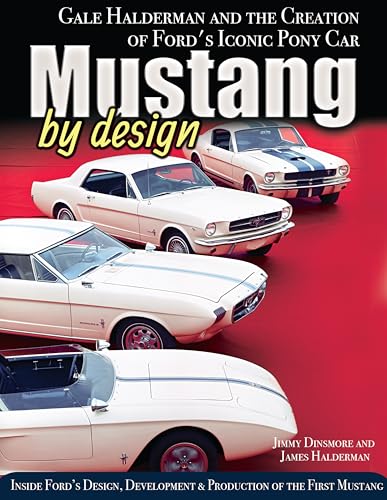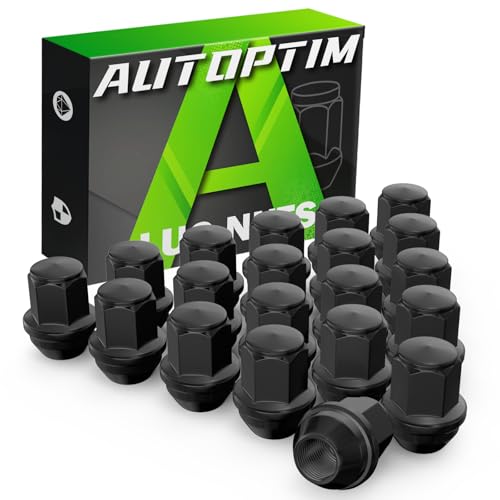That is an interesting find at the least. You mention the floors need to be redone, presumably due to corrosion/rust. Prepare yourself for more rust damage repair work. From what I have experienced a "little" rust on one "little area" often becomes a foreboding of deeper issues with rust, to include under trim pieces where you can't see the rust damage until after you begin to remove trim parts. Go ahead, ask how I found out. On all but one of our purchases of pony/sports cars we got really lucky. The one that turned out to be a nightmare turned into a very costly step for us. We could, and probably should, have sold it off as a crash derby car and just take our beating in the acquisition price less whatever we could have gotten for it. But, I had made a commitment to the seller, who only sold his beloved Mach 1 due to some serious health issues, and for love of the breed. The car itself, other than the many rust issues, was in good condition, and amazingly the floorboards are in great condition, the metal panels were straight, and the interior was in near excellent condition.
The prior owner had done some work on it. The car came originally (also) with a bone stock 30202c with a c4 auto tranny. No factory A/C, but it did have power steering and power drum brakes. He replaced the 302 with a 1994 351W with fairly rare 1969 351W 4v heads. The 351W was built with moderate street/strip specs and on the dyno following its build was producing 360 HP at the crankshaft. In order to help get the power from the engine to the ground he replaced the very steep, fuel economy oriented rear axle 2.79:1 gears with a 3.5:1 TractionLok gear set. The result was he had a very spirited pony car to cut around in.
Once we acquired the Mach 1 we replaced the original cooling system with a 3 row aluminum radiator and dual electric fans. I also opted to use a variable temperature bourdon tube and capillary tube controller to trigger the fan relay to run the cooling fans on and off. In order to alert the driver to the cooling fans being powered I mounted an LED amber light monitor under the driver rear edge of the hood, where the amber LED lights come on every time the fan relay was sending current to the fans. The C4 auto tranny used to have a very firm shift (high performance internals were used when it was rebuilt when we first got the car. After two years of lighting the rear tires up on the 1-2 upshift when running at Wide Open Throttle, the C4 began to slip on the 1-2 upshifts. I did not feel a simple band adjustment would resolve the issue as the slipping was really bad. So, we had an AOD built to shift more firmly than the factory design, and swapped it into the Mach 1. Wow, the best of both worlds, a fairly low rear axle for low end performance where the AOD gears 1, 2, and 3 are nearly identical to the C4 gears 1, 2, and 3 gear ratios. And the 4th gear OverDrive is a very nice 0.7:1 ratio, which the built engine is able to handle at higher speeds as it can overcome the air resistance at higher speeds.
We did add Classic Air A/C, rebuilt the alternator with a larger rotor so the output went from 42 amps to over 90 amps. I installed halogen headlights and a headlamp relay to keep the higher amperage current from having to flow through the headlight switch, installed an x-pipe to help take some of the higher frequency sounds waves out of the exhaust tone, installed a Garmin Drive 52 GPS with the option front and rear camera displays (for backup and parking), a full length center console with a fabricated power panel (12 volt and dual USB outlets) mounted in what had been the ash tray, installed a WebCam, and replaced the original taillight 1157 incandescent bulbs with an LED set of panels that feature sequential turn signal flashing. After all that we did the deep re$toration. With the restoration we added a set of Dzus hood looks, a rear wing, and a set of louver slats. The primary exterior color is a PPG Sunset Orange, a fine grain translucent metallic shot over a base white for its candy effect. The blackout schema was shot in PPG Hot Rod Black Matte. The front hood Call-Out ("351 RAM AIR") was done using a paint stencil so the Sunset Orange paint under the blackout paint peers through to display the Call-Out characters, which I really like the appearance of. We also installed a Dakota VHX analog gauge instrument panel, replacing the original idiot light laden panel - some seriously high $$$, but so well worth it..
We have a lot of fun cutting around on the Mach 1, and I am hopeful you will have a lot of fun with yours also once you get it back on the road. One quick aside, in 1972 and 19733 the Mustang offered engine sizes the following: 250, 302, and a few flavors of 351C. In 71 it did offer a 429, but never a 460 (it is the same physical size as a 429). If you have a 460 and C6 it is from a different vehicle, which is fine as it ought to fit in the engine compartment nicely once you locate the correct engine mounts. The C6 is a tranny with legendary strength, but it also has a fairly high level of parasitic loss. The 460 ought to have plenty of power to over the steep 2.73:1 rear axle ratio gear set, if you still have that. But, it will also have enough power to destroy that rear axle gear set, the 8" rear axles were never intended to handle the kind of power from a high output engine. If you move to a 9" rear axle gear set I think you will be much happier than with the steep 2.73:1 gears. I have found a 3.5:1 ratio gear set to be a compromise between street and highway driving, and good performance at lower speeds. I would strongly suggest you get the TractionLok gear set, otherwise you will be shredding either one rear tire or the other, whereas with TractionLok you get power to both rear tires at the same time, similar to a PosiTraction gear set. With a 460 you will have perpetual traction issues upon initial launches until you learn to walk into acceleration smoothly. Even with our smaller street/strip 351W and its 3.5:1 TractionLok rear axle gears we have a traction at launch challenge. I have relearned the lesson of less power sent to the wheels is better on launch more than a few times.
As far as documentation is concerned you are fortunate to have available some excellent resources through Forel Publications. In 1972 Ford finally began to offer some nice electrical schematics, and for 1973 they really did a nice job. The Forel colorized 1973 Mustang electrical schematic PDF is really nicely done, well worth the price to have it on hand. As for engine vacuum control routing for emissions, and distributor vacuum advance control, the Forel 1973 Shop Manual shows some great vacuum system calibration schematics in Volume 6 - which also shows details for their various emission control systems. Emission control efforts for 1973 were fairly tame, just being at an earlier transition point before they began to get really stupid with a lot of different emission control schemes. But, it was in 1973 Ford began to use Exhaust Gas Recirculation (EGR) to reduce combustion chamber temperatures and temperature in an effort to reduce NOX emissions. Depending on the year and vehicle your 460 came from it may or may not have an EGR valve. There are some years of 460 production that are preferable over other years (1973 i a less desirable year for 460). You should Google "Ford 460 engine" and read up before doing any work on the 460. Here is one of the many sites I came across:
https://www.drivingline.com/articles/a-history-of-the-ford-460-the-blue-ovals-longest-lasting-truck-big-block-v8/
The Forel Publications site where you can get a lot of manuals in PDF format for a very reasonable price is at:
https://www.forelpublishing.com/clickbank/index.html#1973
In the event your 460 engine is from a year prior to 1973, hence in years where there was scant info even from Ford re: how the engine vacuum calibrations were put together, The Mustang Barn created a set of vacuum calibration schematics for 1967 - 1972. With their permission I assembled all of their individual PDF files into a single PDF file where I grouped and sorted the calibrations by year and by engine size. You may find this useful (file attached to this post) if the 460 is not a 1973 engine. Said file is attached to this post for you to download if you like. Also, in the Forel Shop Manual Volume 6, which covers emission control vacuum calibrations, there are two 351 4v calibrations that were not included, for reasons unknown. I have attached them also in case you ever find a need for the calibration (for yourself or someone else).
Finally (whew, finally), here are two YouTube links showing our 1973 Mach 1 in a series of photos put into a video file where we documented the 13 1/2 months of work done on it, and another walk around video of the Mach 1on its last day of its restoration. It was costly, very costly (6 figure costly). But we ended up with a really nice pony car with a history of being saved from becoming a demolition car or destroyed in some other similar manner had we opted to turn it loose instead of restoring it.
https://youtu.be/y0MiVAFj_sQ
https://youtu.be/_Fl0B-qmlLI



























































